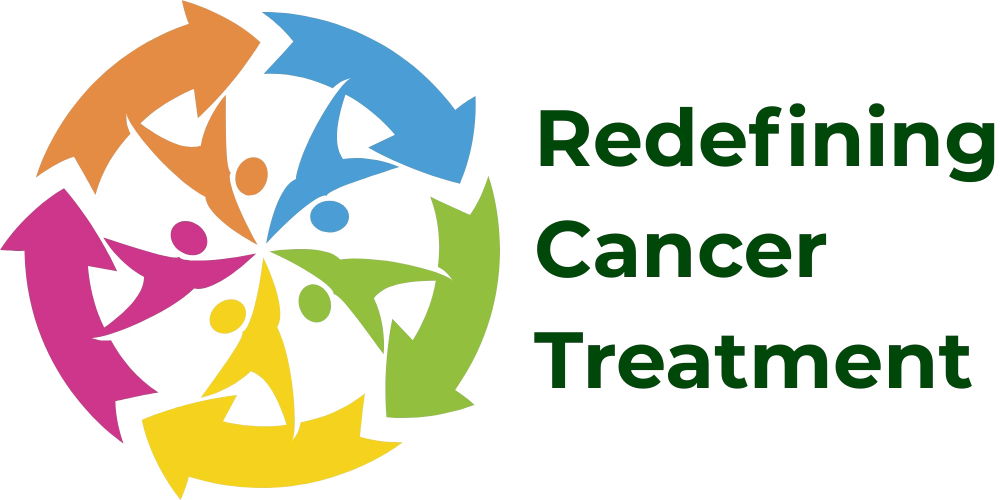The ReDO Project:
Enhancing Cancer Treatment with Repurposed Drugs
By repurposing drugs with potential anti-cancer properties, the project aims to provide additional therapeutic options that complement traditional treatments, leveraging the safety profiles of well-known drugs to accelerate new treatment strategies for patients.

An Overview of
The ReDO (Repurposing Drugs in Oncology) Project is dedicated to exploring and utilising existing non-cancer drugs to enhance cancer treatment. By identifying and repurposing drugs that have shown potential in inhibiting cancer growth, the ReDO Project aims to provide additional therapeutic options that complement traditional cancer treatments. This innovative approach not only leverages the safety profiles of well-known drugs but also accelerates the availability of new treatment strategies for patients. Join us in discovering how repurposed drugs can play a crucial role in the fight against cancer.
Identification
Discovering existing non-cancer drugs with potential anti-cancer properties.
Research
Conducting preclinical and clinical studies to evaluate the efficacy and safety of these drugs in cancer treatment.
Integration
Combining repurposed drugs with traditional cancer therapies to enhance treatment outcomes.
Implementation
Making these repurposed drugs available as part of standard cancer treatment protocols.
Identification
Discovering Potential Anti-Cancer Drugs
The first stage of the ReDO Project is the identification of existing non-cancer drugs that have potential anti-cancer properties. This involves a comprehensive review of scientific literature, databases, and clinical studies to pinpoint drugs that have shown promise in inhibiting cancer growth. By leveraging the extensive knowledge and data available, the ReDO Project aims to uncover hidden gems within the vast array of existing medications.
Literature Review
Conducting an in-depth analysis of scientific publications and research papers to identify drugs with potential anti-cancer effects.
Database Screening
Utilising specialised databases to search for drugs that have demonstrated anti-cancer activity in preclinical or clinical studies.
Expert Consultation
Engaging with oncologists, pharmacologists, and other medical experts to gather insights and recommendations on potential drug candidates.
Preliminary Testing
Performing initial laboratory tests to validate the anti-cancer properties of identified drugs.
Research
Evaluating the Efficacy and Safety of Repurposed Drugs
The second stage of the ReDO Project involves rigorous research to evaluate the efficacy and safety of identified repurposed drugs in cancer treatment. This stage is crucial to ensure that the selected drugs can effectively inhibit cancer growth and are safe for patients. The research process includes preclinical studies, clinical trials, and continuous monitoring to gather comprehensive data on the drug’s performance and potential side effects.
Preclinical Studies
Conducting laboratory experiments and animal studies to assess the anti-cancer properties and safety of the repurposed drugs.
Phase I Clinical Trials
Testing the drug on a small group of patients to evaluate its safety, dosage, and initial efficacy.
Phase II Clinical Trials
Expanding the study to a larger group of patients to further assess the drug’s efficacy and side effects.
Phase III Clinical Trials
Conducting large-scale trials to confirm the drug’s effectiveness, monitor side effects, and compare it to standard treatments.
Continuous Monitoring
Ongoing observation and data collection to ensure the long-term safety and efficacy of the repurposed drugs in cancer treatment.
Integration
Combining Repurposed Drugs with Traditional Cancer Therapies
The third stage of the ReDO Project involves integrating repurposed drugs with traditional cancer treatments to enhance therapeutic outcomes. This stage focuses on developing combination therapies that leverage the unique properties of repurposed drugs to improve the effectiveness of existing cancer treatments. By combining these drugs with standard therapies, the ReDO Project aims to provide patients with more comprehensive and effective treatment options.
Combination Strategy Development
Designing treatment protocols that combine repurposed drugs with traditional cancer therapies.
Synergy Testing
Conducting laboratory experiments and clinical trials to evaluate the synergistic effects of the combination therapies.
Optimisation
Refining the combination protocols based on research findings to maximise therapeutic benefits and minimise side effects.
Implementation
Bringing Repurposed Drugs to Clinical Practice
The final stage of the ReDO Project is the implementation of repurposed drugs into clinical practice. This stage focuses on ensuring that the newly developed combination therapies are accessible to patients and integrated into standard cancer treatment protocols. By working closely with healthcare providers and regulatory bodies, the ReDO Project aims to make these innovative treatments widely available to improve patient outcomes.
Regulatory Approval
Securing necessary approvals from regulatory agencies to ensure the safety and efficacy of the repurposed drugs.
Healthcare Provider Training
Educating healthcare professionals on the use of repurposed drugs and combination therapies in cancer treatment.
Patient Access
Ensuring that patients have access to the new treatments through healthcare facilities and programs.
Monitoring and Feedback
Continuously monitoring the effectiveness and safety of the implemented treatments and gathering feedback from healthcare providers and patients to make necessary adjustments.
Overview
Primary Benefits of
the ReDO Process
The ReDO (Repurposing Drugs in Oncology) Project is a pioneering initiative aimed at enhancing cancer treatment by repurposing existing non-cancer drugs. By leveraging the safety profiles and known effects of these drugs, the ReDO Project seeks to provide additional therapeutic options that complement traditional cancer therapies. We fully support this concept at metabolictherapy.com as a step to moving away from what has become the traditional “standard of care” in oncology.
Accelerated Availability of Treatments
Repurposing existing drugs allows for faster integration into clinical practice, as these drugs have already undergone extensive safety testing. This accelerates the availability of new treatment options for patients.
Cost-Effective Solutions
Utilising existing drugs can significantly reduce the costs associated with drug development. This makes innovative cancer treatments more accessible and affordable for patients and healthcare systems.
Enhanced Treatment Outcomes
Combining repurposed drugs with traditional cancer therapies can improve treatment efficacy and patient outcomes. This integrated approach offers a more comprehensive strategy for combating cancer.
The ReDO Project represents a forward-thinking approach to cancer treatment, harnessing the potential of existing drugs to provide new hope for patients. The press/pulse protocol is already utilising some of the drugs in the ReDO Project database, showcasing the practical application of this innovative research. At metabolictherapy.com, we look forward with great interest to the publication of many more tests underway in the project. Together, we can pave the way for more effective and accessible cancer treatments.


